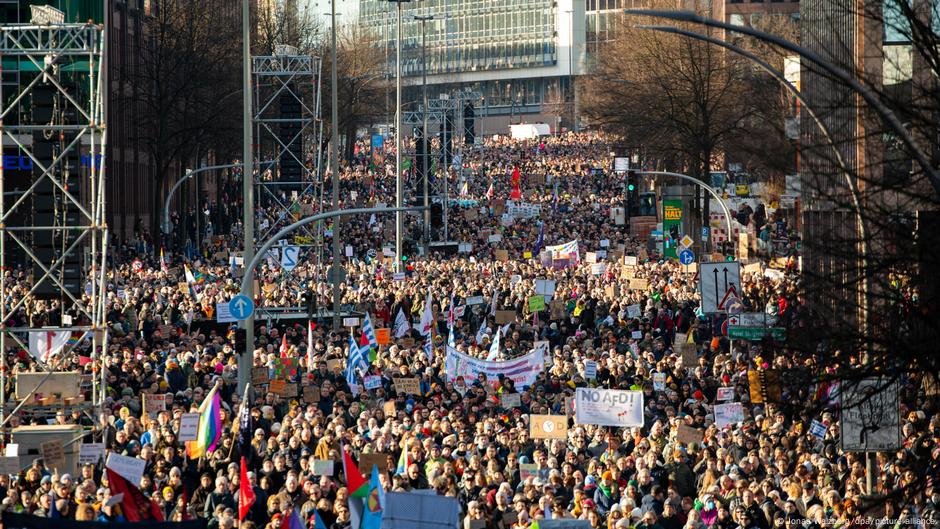Germany stands at a critical juncture as Friedrich Merz, the leader of the right-wing Christian Democratic Union (CDU), prepares to assume the position of Chancellor. His promise to restore stability and leadership to both Germany and the European Union (EU) comes at a time of deep economic uncertainty and political fragmentation. With a weakened European economy, escalating tensions in Ukraine, and the growing strength of the far-right, Merz’s tenure is unlikely to provide the stability he claims to offer.
Despite his rhetoric of unity and strength, the reality is stark: Germany’s global economic dominance has been in decline for years, and its capitalist foundations are crumbling under the weight of the global crisis. His tenuous electoral victory and the rise of the far-right Alternative for Germany (AfD) signal that Germany’s ruling elite is losing control over the political landscape.
As Merz assumes office, he is stepping into what is arguably the weakest and most unstable German government in recent history. Far from uniting Europe, his administration will struggle to maintain coherence at home, let alone provide leadership on the international stage.
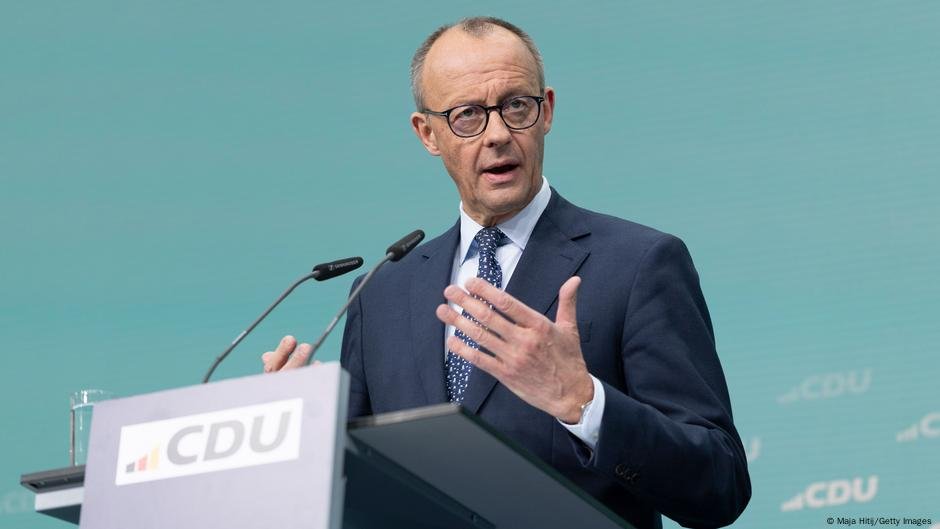
A Pyrrhic Victory for the CDU
Merz enters office as one of the most unpopular Chancellors in German history. According to Politbarometer, he holds a mere 32% approval rating, making him significantly less popular than former Chancellor Olaf Scholz was when he took office in 2021. The CDU/CSU alliance’s 28.5% electoral result—while an improvement from 2021—is still the second-worst in the party’s history. His rightward shift on migration—aimed at winning back voters from the AfD—has only served to embolden the far right. The Bundestag vote on restricting migration, staged shortly before the election, saw the CDU aligning with the Free Democratic Party (FDP) and the AfD. However, this tactical move failed to bolster the CDU’s standing. Instead, it reinforced the AfD’s anti-establishment image, making them the real winners of the election with 20.8% of the vote.

Meanwhile, the so-called “Traffic Light Coalition”—the alliance of the Social Democratic Party (SPD), Greens, and FDP—was decisively rejected by voters. The SPD secured only 16.4%, the Greens 11.6%, and the FDP collapsed to 4.6%, falling below the parliamentary threshold. The political landscape is now more fragmented than ever, with an emboldened far right, a weakened traditional center, and a resurgent Die Linke (Left Party), which secured 8.8%, largely due to mass opposition to austerity and anti-migrant policies. The question now is whether Die Linke will channel this momentum into an effective opposition movement—or retreat into the confines of parliamentary maneuvering.
Merz’s administration will not be a strong one. His coalition government—likely formed with the SPD and Greens—will be inherently unstable, plagued by conflicting interests and competing political factions. Should the Sahra Wagenknecht Alliance (BSW) secure enough votes to cross the 5% parliamentary threshold, Merz may be forced into a three-party coalition, creating even more legislative paralysis.
The global capitalist crisis and the ongoing war in Ukraine have placed Germany in an untenable economic position. The country’s once-mighty industrial sector has been severely weakened by energy shortages, inflation, and supply chain disruptions. The destruction of the Nord Stream pipeline—widely believed to have been orchestrated by the United States—was a strategic blow to Germany, cutting off a crucial source of cheap Russian gas.
Merz’s government will face immediate pressure from international financial institutions to implement austerity measures, exacerbating social unrest. The CDU’s traditional support for big business and neoliberal policies will put it at odds with an electorate that is increasingly radicalized—either towards the left (Die Linke, trade unions, and youth movements) or the far right (AfD).
The biggest danger, however, is that if a strong left-wing alternative does not emerge, the AfD could become Germany’s dominant political force by the next federal election.
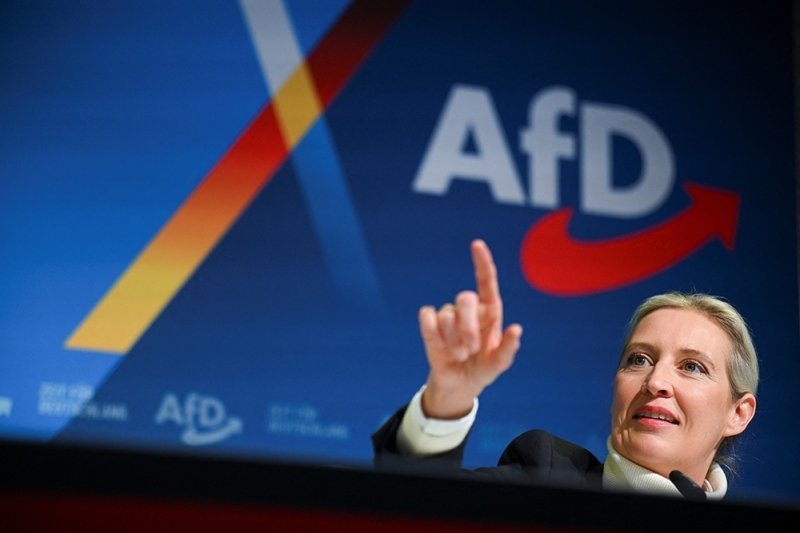

Trump’s Shockwave: The Collapse of Transatlantic Relations
Germany’s internal crisis is deeply intertwined with shifting geopolitical realities. The return of Donald Trump to the U.S. presidency marks the definitive end of the transatlantic order that has governed German and European foreign policy for decades.
Trump’s “America First” doctrine has exposed the vulnerability of Germany’s economic and military dependency on the United States. His administration has:
- Abandoned NATO’s Article 5 commitments, signaling that the U.S. will not guarantee European security.
- Blocked German access to crucial energy supplies, forcing the country to buy expensive American liquefied natural gas (LNG).
- Imposed protectionist trade policies, weakening German exports to the U.S. market.
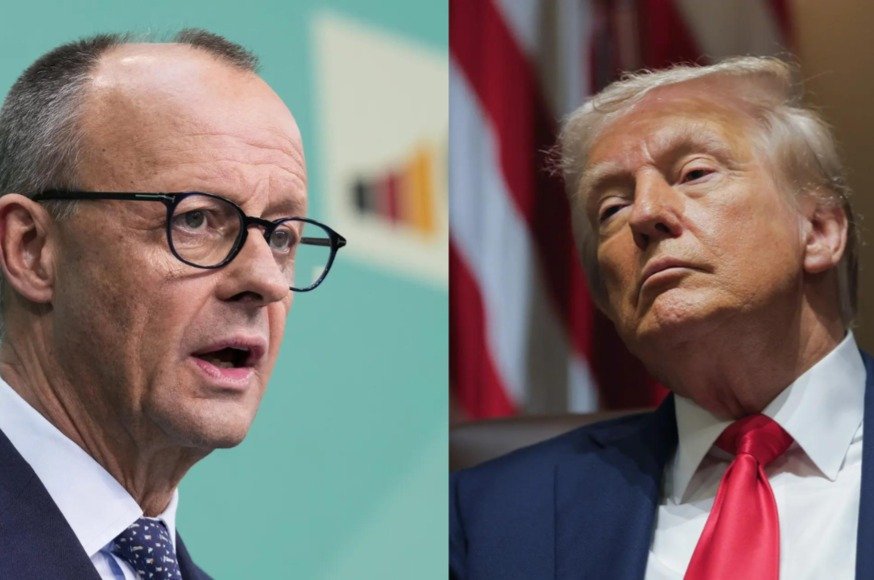
Merz has acknowledged this reality, admitting that the U.S. “is largely indifferent to the fate of Europe”. However, his proposed solution—military independence for the EU—is both unrealistic and self-contradictory. Germany lacks the financial and industrial capacity to become a global military power on its own. Moreover, the internal divisions within the EU make any united European defense policy highly unlikely.
At the upcoming NATO Summit in June, Germany will be expected to dramatically increase its military spending—potentially beyond 5% of GDP, aligning with Trump’s demands. However, with a struggling economy and social unrest at home, how will Merz justify these expenditures?
The EU is no longer a rising imperialist power. It is a fractured entity, losing its relevance in the global order. The war in Ukraine has accelerated this decline, forcing European leaders to choose between continued economic hardship or accepting a negotiated settlement dictated by Russia and the United States.
The Rise of the AfD: A Growing Threat
While Merz postures as a defender of democracy, his shift towards nationalist rhetoric has only strengthened the AfD. Despite attempts to co-opt far-right policies, Merz’s CDU has failed to absorb the AfD’s voter base. Instead, the AfD is increasingly positioning itself as the true anti-establishment force in Germany.
Adding to this instability, Trump’s administration has openly signaled its support for the AfD. During the Munich Security Conference, U.S. Senator JD Vance defended the party, while billionaire Elon Musk has also promoted AfD figures. This represents a major strategic shift, as the U.S. ruling class under Trump now sees European nationalist movements as useful tools for undermining the EU and strengthening American dominance.
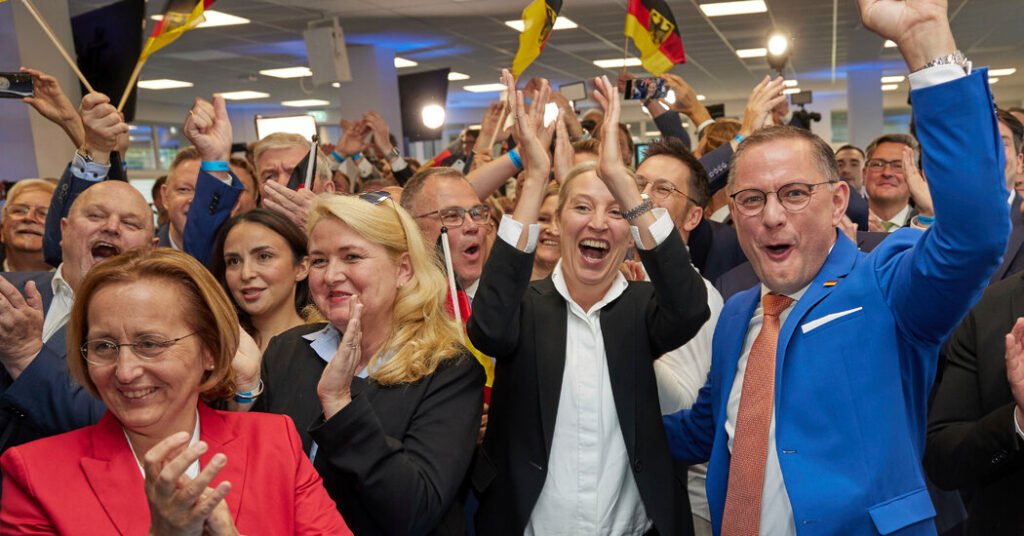
The AfD’s growth is not simply the result of racism or nationalism—it is a symptom of the failure of traditional parties to address the economic crisis. If a genuine left-wing alternative does not emerge, disillusioned workers and youth will continue to flock to the AfD, seeing it as the only party willing to challenge the establishment.
Merz’s Chancellorship will not resolve Germany’s crisis—it will deepen it. The CDU’s attempts to balance nationalism with neoliberalism will prove unsustainable, and the contradictions of German capitalism will continue to unravel.
The question now is whether the left will rise to the occasion. Die Linke has made electoral gains, but without a militant, organized strategy, it risks being absorbed into the parliamentary system, offering little resistance to the coming wave of austerity and militarization.
The working class and youth must prepare for an intensified struggle against neoliberal policies, far-right encroachment, and the European ruling class’s attempts to maintain its crumbling order. Without a clear, revolutionary alternative, Germany’s future will be defined by crisis, repression, and the continued rise of reactionary forces. The time to build a real opposition to capitalism and imperialism is now.
